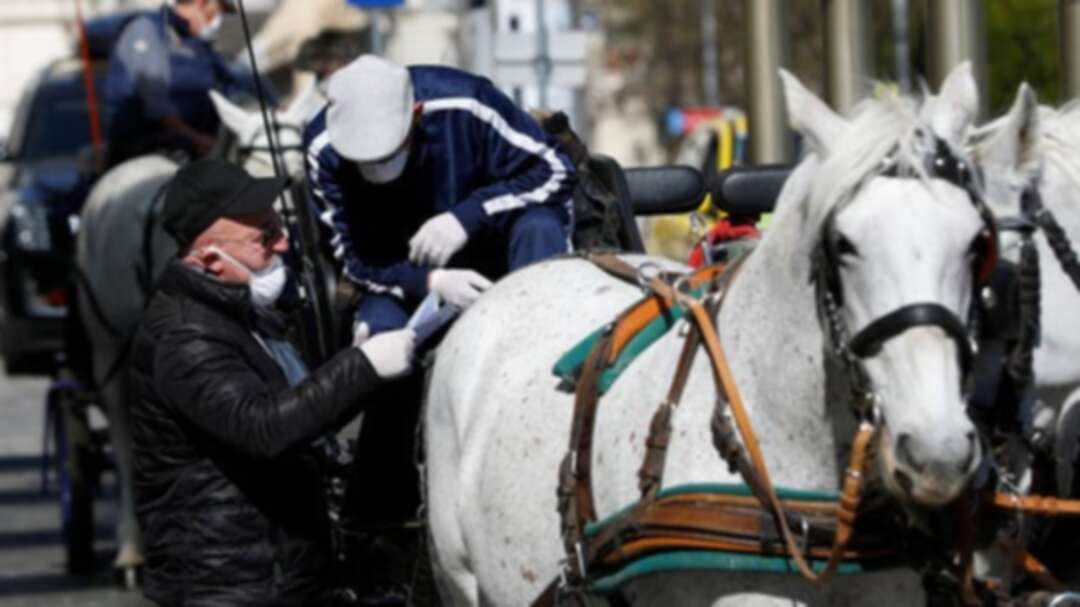-
Under 1 percent of Austria infected with coronavirus: Study

Less than 1 percent of Austria’s population is infected with the coronavirus, a study published on Friday found, based on testing a representative sample of more than 1,500 people.
The first such study in continental Europe, led by pollster SORA which is known for projecting election results, aimed to provide a clearer picture of the total number of infections, given gaps in testing.
Austria’s current policy is to test people with symptoms, especially if they have been to a known hotspot or in close contact with an infected person. That means many cases, such as people with no symptoms and those with no known contact to an at-risk area, go undetected.
“Based on this study, we believe that 0.33 percent of the population in Austria was acutely infected in early April,” SORA co-founder Christoph Hofinger told a news conference. Given the margin of error, the figure was 95 percent likely to be between 0.12 percent and 0.76 percent.
Austrian Chancellor Sebastian Kurz, whose government commissioned the study and saw initial findings a few days ago, said on Monday that the rate of infection was around 1 percent. He said that disproved the idea of herd immunity – which requires widespread infection – as a viable policy option.
Austria reacted early to the outbreak in the country, closing schools, restaurants, theatres and other gathering places more than three weeks ago, and telling the population to stay home and work from there if possible.
The outbreak has remained within the health system’s capacity and hospitalizations have stabilized, with the daily percentage increase in infections in low single digits. There have been 319 deaths so far.
Austria has reported 13,337 confirmed cases, roughly 7,000 of which are still active, meaning they have neither recovered nor died. The study estimated the current number of infections was more than four times that – around 28,500 people. It also excluded those in hospital, currently around 1,000 people.
The study, conducted between April 1 and April 6, in which 1,554 people were tested, did not involve antibody tests, which could tell whether a currently virus-free person was previously infected and is therefore probably immune. Future studies should involve antibody tests, the government has said.
Those studies will inform policy as Austria starts to reopen shops as of Tuesday next week.
“We must monitor whether there is a second wave and the number of infected people starts to rise again... We are still in a very, very sensitive situation. This study shows that, too. Corona is in our society,” Education Minister Heinz Fassmann said.
source: Reuters
You May Also Like
Popular Posts
Caricature
BENEFIT Sponsors BuildHer...
- April 23, 2025
BENEFIT, the Kingdom’s innovator and leading company in Fintech and electronic financial transactions service, has sponsored the BuildHer CityHack 2025 Hackathon, a two-day event spearheaded by the College of Engineering and Technology at the Royal University for Women (RUW).
Aimed at secondary school students, the event brought together a distinguished group of academic professionals and technology experts to mentor and inspire young participants.
More than 100 high school students from across the Kingdom of Bahrain took part in the hackathon, which featured an intensive programme of training workshops and hands-on sessions. These activities were tailored to enhance participants’ critical thinking, collaborative problem-solving, and team-building capabilities, while also encouraging the development of practical and sustainable solutions to contemporary challenges using modern technological tools.
BENEFIT’s Chief Executive Mr. Abdulwahed AlJanahi, commented: “Our support for this educational hackathon reflects our long-term strategic vision to nurture the talents of emerging national youth and empower the next generation of accomplished female leaders in technology. By fostering creativity and innovation, we aim to contribute meaningfully to Bahrain’s comprehensive development goals and align with the aspirations outlined in the Kingdom’s Vision 2030—an ambition in which BENEFIT plays a central role.”
Professor Riyadh Yousif Hamzah, President of the Royal University for Women, commented: “This initiative reflects our commitment to advancing women in STEM fields. We're cultivating a generation of creative, solution-driven female leaders who will drive national development. Our partnership with BENEFIT exemplifies the powerful synergy between academia and private sector in supporting educational innovation.”
Hanan Abdulla Hasan, Senior Manager, PR & Communication at BENEFIT, said: “We are honoured to collaborate with RUW in supporting this remarkable technology-focused event. It highlights our commitment to social responsibility, and our ongoing efforts to enhance the digital and innovation capabilities of young Bahraini women and foster their ability to harness technological tools in the service of a smarter, more sustainable future.”
For his part, Dr. Humam ElAgha, Acting Dean of the College of Engineering and Technology at the University, said: “BuildHer CityHack 2025 embodies our hands-on approach to education. By tackling real-world problems through creative thinking and sustainable solutions, we're preparing women to thrive in the knowledge economy – a cornerstone of the University's vision.”
opinion
Report
ads
Newsletter
Subscribe to our mailing list to get the new updates!






















